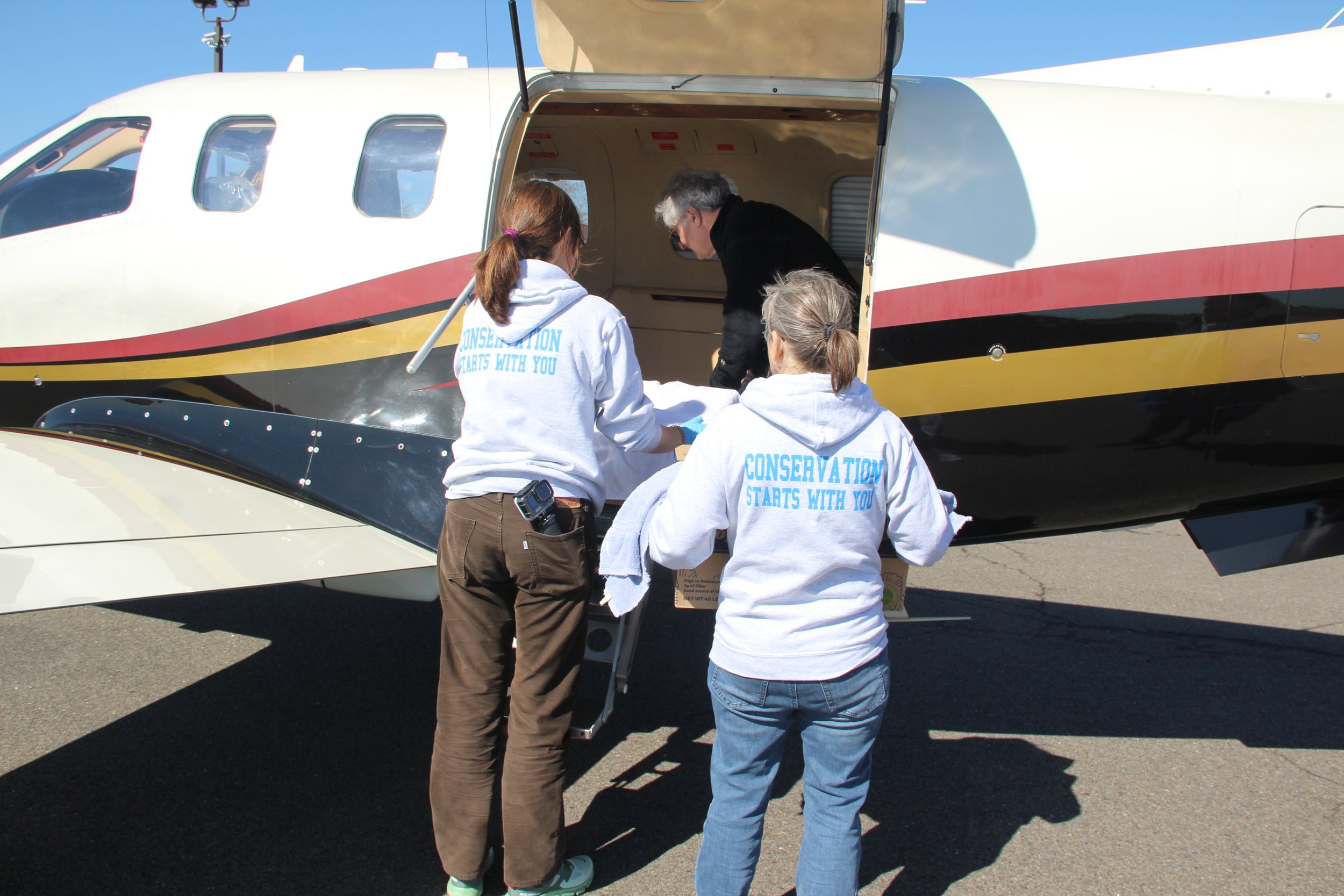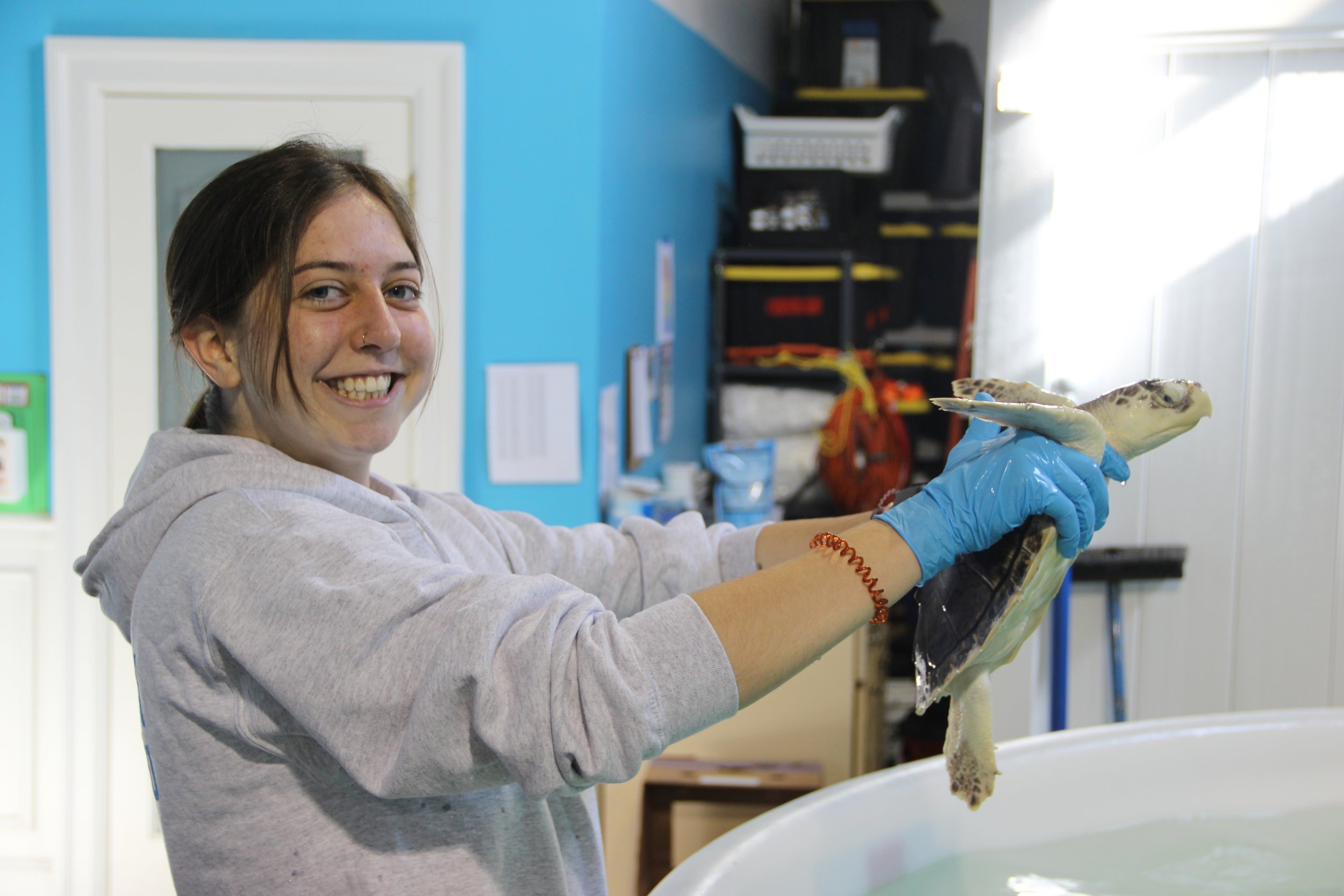Time to Say Goodbye
Written by Mallory Reading
AMSEAS volunteers load banana boxes containing the Kemp’s ridley sea turtle patients to be released into the Turtles Fly Too plane
This Monday we welcomed May in all its bright, sunny glory, and waved goodbye to eight of our rehabilitated Kemp’s ridley sea turtles as they were released back into the ocean. Throughout the past few months amidst several large whale mortality events and predictable seal strandings, in the background constant effort has poured into treating and rehabilitating 20 juvenile cold-stunned Kemp’s ridley sea turtles in our Critical Care Sea Turtle Facility. To start off this week we saw the release of eight of these turtles in an excitingly bittersweet morning full of banana boxes and private planes.
AMSEAS Intern Mallory Reading pulling one of the turtles from its swim tank to prep it for transport
The eight turtles that were chosen for release were our healthiest, feistiest turtles, and we’re confident they’re doing great back out in the wild waters of North Carolina. Dr Julie Fithian of Pet Health Centers, one of the veterinarians we work closely with, assessed all the turtles and deemed these eight to be fit for release. The remaining turtles have various health issues ranging from abscesses and inflammation to swelling of the ears, so they will continue to recover in our care to be released at a later date. Some have injuries from their fellow captive cold-stuns, as keeping turtles in captivity is quite difficult due to their solitary nature. Luckily a few of the turtles that showed the most aggressive behavior towards their tank mates were candidates for release, and are now happily swimming solo.
A sea turtle patient’s PIT tag is scanned using the PIT tag reader to ensure the tag is fully functioning prior to release
The release process involved pulling the turtles from their tanks, applying Vaseline to their shells and an ointment to their eyes to prevent them from drying out, and placing them in a banana box atop a towel for transport. The eight turtles were also tagged using Passive Integrated Transponders, or PIT tags, which will allow us to identify them if we come across them again. These tags were scanned to ensure they were functional before sending them off. We then took the turtles over to the airport, meeting our partners at Turtles Fly Too to get our ridleys loaded up on the plane. Turtles Fly Too is a volunteer organization helping to relocate endangered animals, and this release wouldn’t be possible without them. The flight took off around 10 AM, and the turtles were released into the water off of Fort Macon State Park in North Carolina that same day.
AMSEAS Stranding Technicians Jackie O’Neill and Joseph Zawada and Intern Mallory Reading celebrate a successful operation after loading the turtles into the plane
Though rehabilitation can involve a rollercoaster of emotions, times like this show the truly rewarding side of our work. Waving off the plane loaded up with healthy turtles and knowing that they’re swimming free in the ocean today makes all the challenging moments worth it. Huge thanks to all our staff and volunteers who helped play a role in the rehab and release. Conservation really does start with you!




